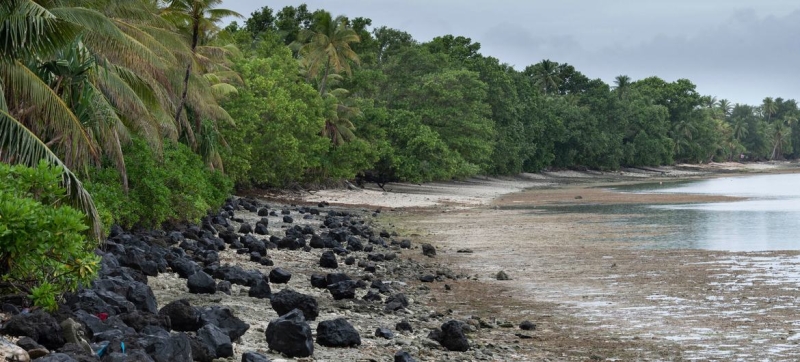
Rising sea levels are eroding coastlines and destroying entire sectors of the economy. Pictured: Tuvalu. UN chief: rising seas will affect everyone Climate and environment
Sea levels are rising faster than at any time in the last 3,000 years, with the rate of rise more than doubling since the 1990s, the UN secretary-general told a high-level meeting on the topic held on the sidelines of the General Assembly general debate.
The reason is obvious, he added: greenhouse gases are heating the planet and melting glaciers. A temperature rise of more than 1.5 degrees Celsius above pre-industrial levels could lead to long-term, irreversible destruction of the Greenland and West Antarctic ice sheets. People alive today could see sea levels rise by several meters.
“Some 900 million people live in low-lying coastal zones. Rising sea levels mean an influx of suffering: more intense storm surges, coastal erosion and coastal flooding; entire communities inundated, freshwater contaminated, crops destroyed, infrastructure damaged,” António Guterres said.
All of this will destroy biodiversity and undermine economies. Entire sectors such as fisheries, agriculture and tourism will be hit. The poorest and most vulnerable will suffer the most.
“I’ve seen this recently in the Pacific, where cyclones devastate entire sectors of island economies. Vanuatu suffered damage equivalent to more than half its GDP in 2015. Meanwhile, in Panama, hundreds of island families have been relocated to the mainland. In Bangladesh, saltwater is polluting drinking water, killing crops and threatening people’s health,” the UN chief said.
“This is what climate injustice looks like. This is the face of inequality,” Guterres added.
At the same time, he warned that no one is immune from the consequences of rising sea levels. “Countries with developed economies are spending billions on compensation for damage and adaptation,” the head of the UN emphasized.
Mass displacement of people from coastal areas and islands could increase the socio-economic burden on the areas that receive them, the Secretary-General noted. Global trade, food systems and supply chains will be disrupted by damage to ports, as well as to farmland and fisheries.
By 2027, everyone should be protected by a warning system under our Early Warning for All initiative
Only decisive action to reduce greenhouse gas emissions can limit sea level rise, Guterres stressed. And only decisive adaptation measures can protect people from rising waters.
“By 2027, everyone should be protected by a warning system in line with our Early Warning for All initiative.” All countries must submit new national climate action plans or nationally determined contributions,” the UN chief said.
“The G20 countries, which account for about 80 percent of global emissions, must lead and align their fossil fuel production and consumption plans to within 1.5 degrees Celsius,” he added.
Guterres also stressed the need to invest sufficient finance to combat sea rise. “We need significant contributions to the new Loss and Damage Fund – as a step towards climate justice,” the Secretary-General said.
Developed countries must double adaptation funding to at least US$40 billion a year by 2025. Reforms of multilateral development banks are also needed so that they can provide developing countries with financial resources more quickly.
“We cannot afford the massive destruction of countries and communities. It is time to turn the tide and save ourselves from rising sea levels,” the UN chief concluded.
